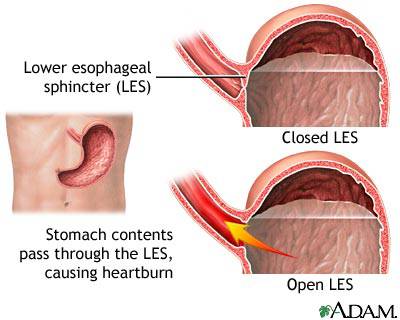+918048040119

This is your website preview.
Currently it only shows your basic business info. Start adding relevant business details such as description, images and products or services to gain your customers attention by using Boost 360 android app / iOS App / web portal.
Description
Hyperacidity and GERD (Gastroesophageal Reflux Disease) are both digestive conditions that are often interrelated but distinct in their manifestations. Hyperacidity: Definition: Hyperacidity refers to the excessive production of stomach acid (hydrochloric acid), which can cause symptoms like heartburn, sour taste in the mouth, or an upset stomach. Causes: Overeating, spicy foods, or fatty foods Stress Smoking Alcohol consumption Certain medications (e.g., NSAIDs) Symptoms: Burning sensation in the stomach or chest (heartburn) Nausea or bloating Sour or acidic taste in the mouth Indigestion or fullness after eating Treatment: Over-the-counter antacids, proton pump inhibitors (PPIs), and lifestyle changes (dietary adjustments, avoiding late-night meals, stress management). GERD (Gastroesophageal Reflux Disease): Definition: GERD is a chronic condition where stomach acid or bile irritates the food pipe (esophagus), often due to the lower esophageal sphincter (LES) becoming weak or relaxed, allowing stomach contents to reflux back into the esophagus. Causes: Weak LES or conditions like hiatal hernia Obesity or pregnancy (increased abdominal pressure) Smoking or alcohol consumption Certain foods (e.g., citrus, chocolate, caffeine) Delayed stomach emptying Symptoms: Heartburn (burning sensation in the chest or throat) Regurgitation (acid reflux into the mouth) Difficulty swallowing or a lump in the throat sensation Chronic cough or hoarseness Chest pain (which may mimic a heart attack) Treatment: Lifestyle changes (diet, weight management, avoiding triggers), medications like antacids, H2 blockers, and PPIs, and in severe cases, surgery (e.g., fundoplication). Relationship Between Hyperacidity and GERD: While hyperacidity refers specifically to excessive acid production, GERD involves the reflux of acid (and sometimes bile) into the esophagus, which may or may not be due to high acidity. GERD often causes the symptoms associated with hyperacidity, but the two are not always the same. A person can have hyperacidity without developing GERD, but GERD almost always involves some level of acid reflux. Prevention and Management: Dietary Changes: Avoiding acidic, spicy, or fatty foods, and eating smaller meals more frequently. Lifestyle Adjustments: Elevating the head of the bed, avoiding meals close to bedtime, maintaining a healthy weight, and managing stress. Medications: Antacids, H2 blockers, or PPIs can be used to control acidity and manage symptoms. If GERD is present, stronger medications or surgery may be necessary. If you have symptoms of either condition, it’s important to consult a healthcare provider for a proper diagnosis and treatment plan tailored to your needs.


